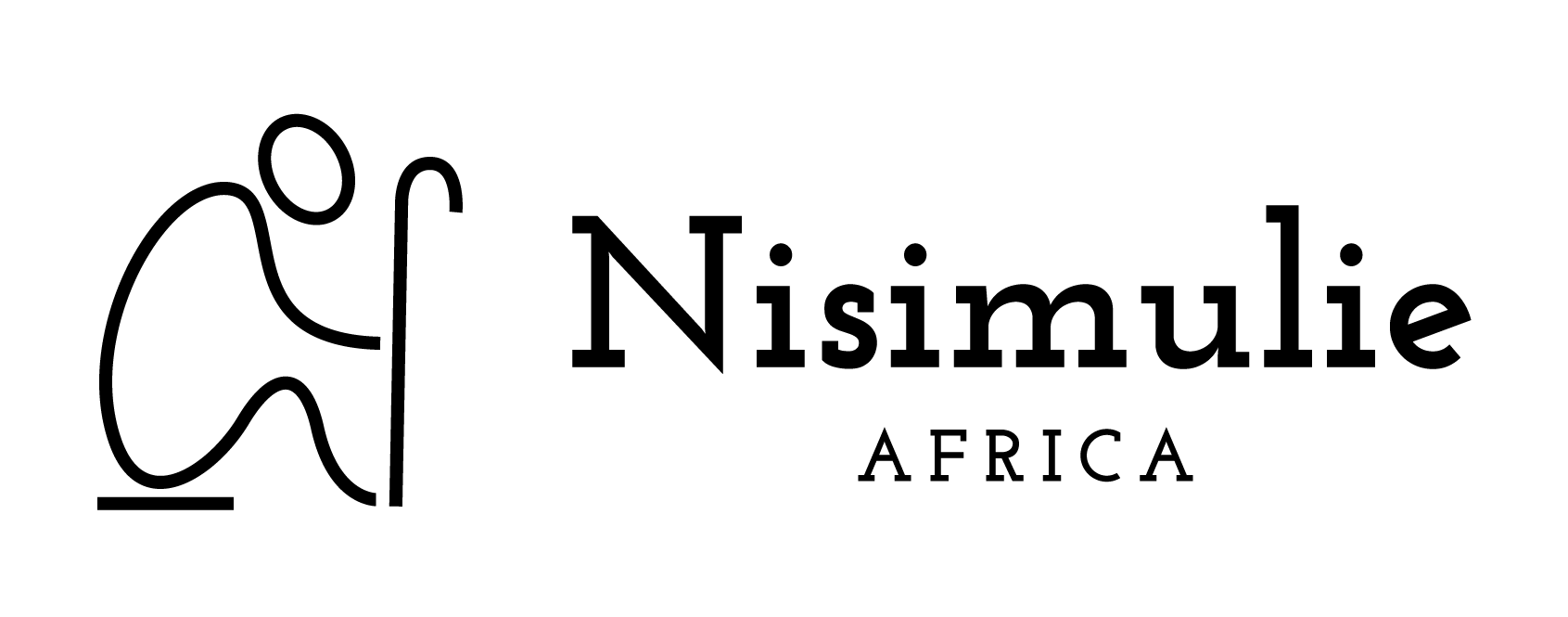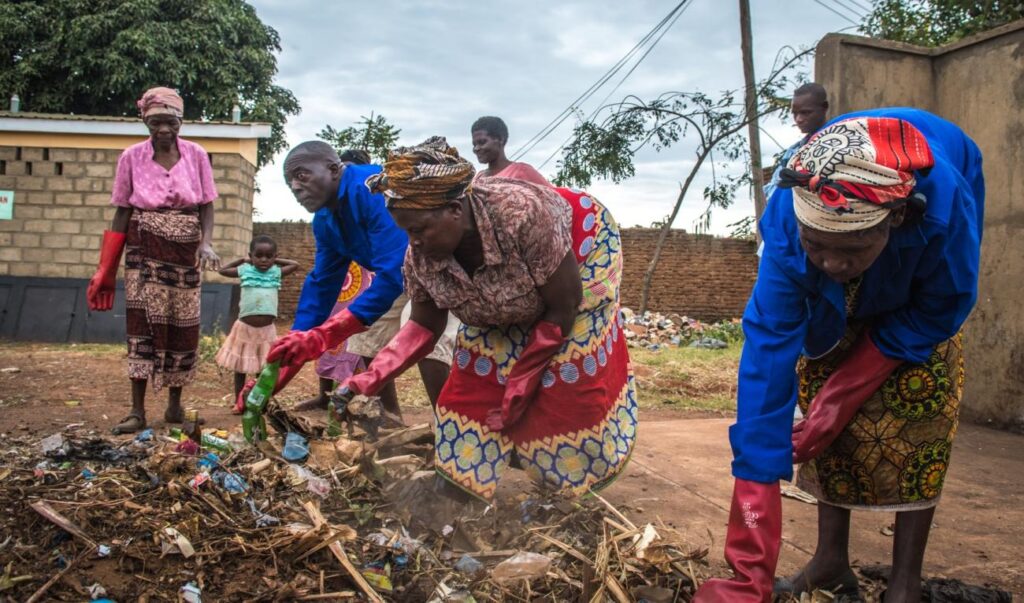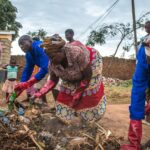Waste Management is a global challenge. With poor infrastructure, waste management poses an even greater environmental concern in developing countries. But in Kawale, a township of the Malawian Capital, Lilongwe , a group of women have seized an opportunity in the midst of the waste crisis by turning these byproducts of everyday household use into economic benefits.
Before what is now being address as the ‘Women of Kawale’, the township was littered with all kinds of household waste ranging from single use plastics to food remains dumped all around including small streams and storm water drainage ways. This occasionally led to periodic pandemics of waterborne diseases such as cholera and typhoid which claimed lives of the residents of Kawale.
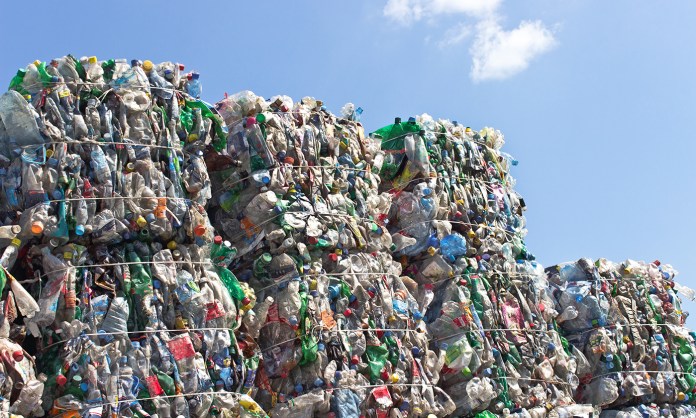
With the township crushing under the weight of its own waste, a group of women ceased this as an opportunity to turn the waste to money. The ‘Women of Kawale’ comprises of 60 women who collect, sort, repurpose, reuse and recycle waste. Initially, the women went round collecting garbage from the neighbourhood but once the operation scaled, the locals now deliver waste to their collection centers.
Once waste is delivered, the women sort it out into biodegradable and non-biodegradable waste. The biodegradable waste is put into digesters to produce biogas for household use and manure to be used in the local farms where as the non-biodegradable waste is turned into household items such as baskets and home decor.
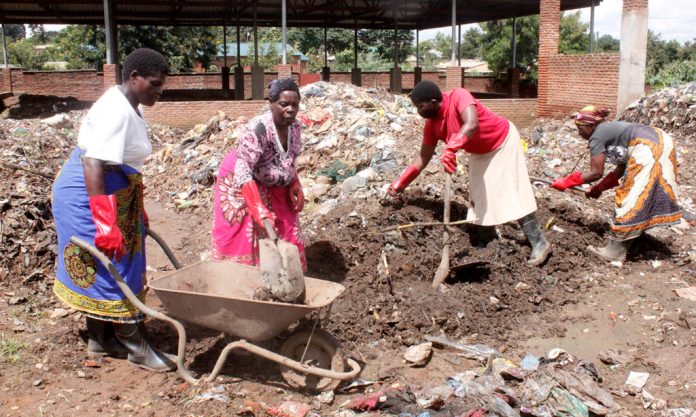
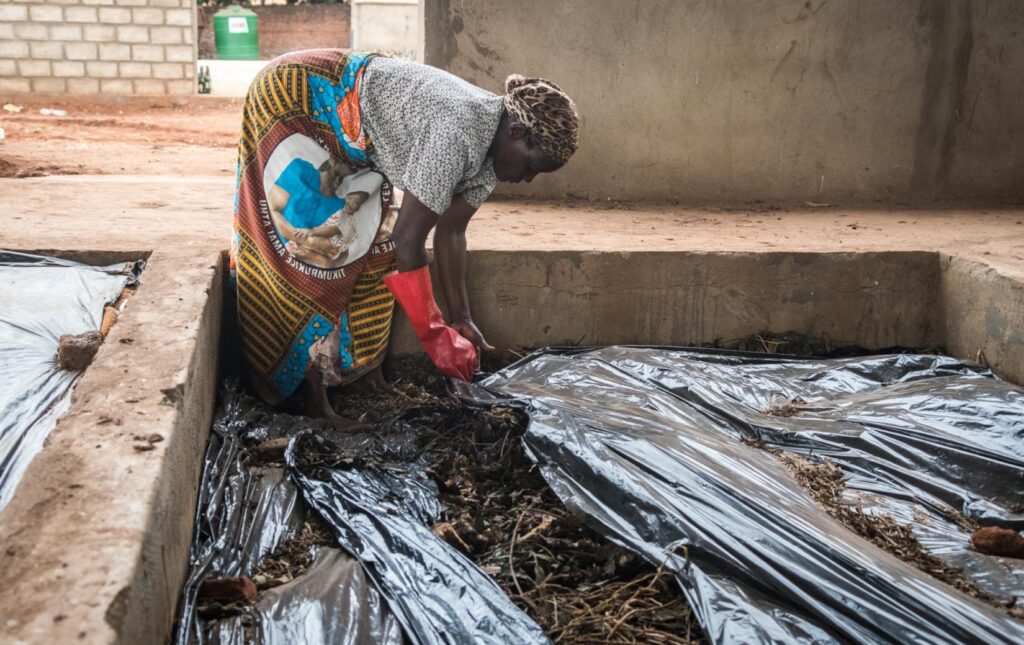
It is quite a warm feeling seeing such initiatives being up and trying to curb challenges of waste management and being part of the global warriors fighting climate change.
Photo Credits: UN Malawi/Gonzalo Bell & Madalitso Wills Kateta

